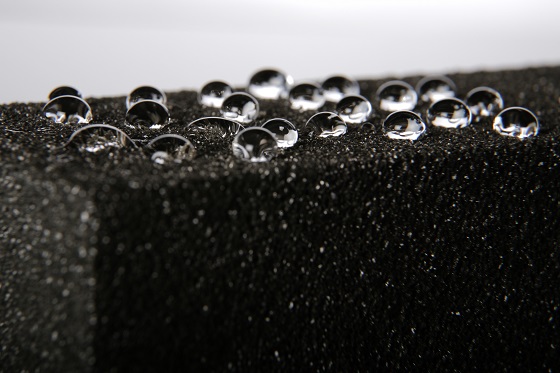The petrochemical industry is used to adapting to changing markets and conditions, but with the current challenges of oil supply volatility and the COVID-19 epidemic, plants and operations are finding themselves needing to develop even more strategies for coping with rapid change. Plants that are operational may be running with smaller workforces or on limited hours. Other plants may be temporarily shut down—waiting for storage to free up and prices to rebound. In either case, when it’s time for systems to resume their usual level of function, they may need to quickly transition from idle to operational. Just as heavy use can take a toll on pipes, times of reduced usage can also pose risks for corrosion under insulation (CUI). An effective CUI mitigation strategy now can help prevent costly repairs and get plants back online more efficiently when production returns to normal—or even more demanding—levels.
Why is CUI a problem?
CUI can impact any insulated pipe, but pipes in petrochemical operations are particularly vulnerable because they are more likely to be subjected to extreme conditions of heat, humidity, chemical agents and weather. Moisture is the biggest risk factor for CUI. Common sources are rainwater/moisture in the air, which can become even more corrosive in coastal areas where salt is carried in the air, and condensation related to pipe operating temperatures.
The prime temperature risk range for CUI in metal pipes is 25°F-350°F (-4°C-175°C).1 These temperatures are typically too low to evaporate all moisture that may be present in an insulation system. However, even high-temperature systems can be at risk when they are not running. Systems that might normally run hot enough to evaporate all moisture can quickly take on moisture during periods of rest.
CUI is often a hidden problem, and even with good maintenance practices, scouting for CUI can be labor-intensive and time-consuming. Moisture and damage may not be noticed until a pipe begins to leak or fails altogether, resulting in additional expense and labor.

Materials and systems that reduce risk of CUI
Moisture can never be completely removed from the equation in a petrochemical pipe situation, so a recommended strategy is to look for materials and systems that resist moisture and can be fully sealed against moisture encroachment.
Many engineers specify cellular glass insulation as an effective option to help protect against CUI. Composed of materials like sand, soda ash and limestone, FOAMGLAS® cellular glass insulation is formed when those materials are heated to extremely high temperatures. The resulting chemical reaction creates millions of hermetically sealed glass cells that are impervious to moisture—both liquid water and water vapor.
Protective materials paired with smart systems
When cellular glass is paired with compatible system accessories, such as high-performance sealants, it becomes an even more robust option to help mitigate CUI.
The FOAMGLAS® Sealed System, for example, is sealed using high-temperature-tolerant, neutral-cure PITTSEAL® Hi-Temp LV RTV Sealant. This sealant performs at temperatures from -238°F to 450°F (-150°C to 232°C)*, and, because it is neutral cure, it doesn’t contribute corrosive characteristics to moisture that may contact the insulation layer.
A recent study conducted by industrial forensics analytics firm RJ Lee Group evaluated the performance of the FOAMGLAS® Sealed System for pipes.2 The study used a modified ASTM B117 procedure and Standard Practice for Operating Salt Spray (Fog) Apparatus 2 in order to replicate typical environmental conditions for many petrochemical operations. The insulated and sealed pipe was exposed to a 5% salt solution in rain or rain/fog conditions for 28 days and then examined for rust under the insulation layer.2 At the conclusion of the study, the pipe protected by the FOAMGLAS® Sealed System showed no visible signs of rust.2

Mitigating worry alongside CUI
With petrochemical operations facing even more uncertainty than usual, cellular glass insulation can help provide additional peace of mind, particularly in harsh environments where a completely sealed insulation system can offer multiple advantages. Impermeable to moisture and capable of standing up to environmental and operational pressures, cellular glass insulation is a smart choice for operations looking to protect vulnerable systems at work and at rest. When cellular glass works with specially engineered sealants and other accessories to create a complete system, such as the FOAMGLAS® Sealed System, the benefits are amplified. Long-term performance, plus the potential for reduced repair and worry over time, make cellular glass insulation systems worth considering where CUI is a major concern.
For more information and to contact our Technical Services team, please visit our website:
FOAMGLAS® Insulation Systems for CUI Mitigation
*450°F (232°C) is the intermittent maximum service temperature limit. Continuous maximum operating temperature is 400°F (204°C).
Sources:
1 NACE International. 2010. “Standard Practice: Control of Corrosion Under Thermal Insulation and Fireproofing Materials—A Systems Approach.”
2 RJ Lee Group. March 2020. “FOAMGLAS® Insulation Sealed System for Prevention of Corrosion Under Insulation (CUI) Testing.” TMH1048815. Data on file.